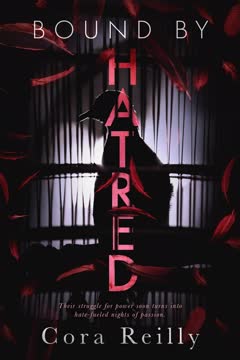Plot Summary
Foundations and Fault Lines
In 1980, Jeffrey McIntyre and Ezekiel James, two ambitious young men, form a construction company in Texas, overcoming racial and financial obstacles. Their partnership is built on mutual respect and shared vision, but the world around them is not always so fair. Zeke's family struggles and Jeff's privilege set the stage for a company that will become both a legacy and a battleground for the next generation. The seeds of future conflict—between ambition, loyalty, and the corrosive effects of prejudice—are sown in these early days, foreshadowing the personal and professional reckonings to come.
Princess in the Castle
Decades later, Erin McIntyre, Jeff's daughter, begins her first post-college job at her father's company, Jeffrey McIntyre Custom Homes. Privileged but insecure, she's acutely aware of the nepotism that landed her the role. Her family's expectations and her own doubts about her abilities weigh heavily. Erin's psychology degree feels out of place in the world of luxury homebuilding, and she's haunted by a recent emotional spiral and academic setbacks. Her parents' subtle lack of faith in her ambitions to become a therapist lingers, and she's determined to prove herself, even as she feels like an imposter in her own life.
The Unwanted Position
Erin learns her new role as client liaison was invented just for her, intensifying her feelings of inadequacy. She meets her supervisor, Isaac Maat, whose initial hostility and professionalism mask deeper wounds. The office is a microcosm of privilege, resentment, and unspoken histories. Erin's tiny, windowless office and Isaac's cool demeanor reinforce her outsider status. She's determined to prove she's more than the boss's daughter, but the company's culture and her own self-doubt make every step feel like a test she's destined to fail.
Clash of First Impressions
Erin's first encounters with Isaac are fraught with mutual suspicion and unspoken judgments. Isaac, a highly qualified Black man with a Wharton MBA, is wary of Erin's privilege and the nepotism that brought her to his team. Erin, meanwhile, is frustrated by his coldness and feels unfairly judged. Their interactions are laced with microaggressions, misunderstandings, and the weight of their respective backgrounds. Both are haunted by past traumas—Erin by a recent breakup and academic failure, Isaac by the legacy of his family's exclusion from the company's founding.
Red Folders and Risk
Erin is tasked with handling the company's most difficult clients, symbolized by red-tabbed folders. Her first major challenge is Wayne Jansen, a hostile, nitpicking client whose complaints have stymied the entire team. Erin's psychological insight and empathy become her tools, as she navigates Jansen's ego and underlying personal issues. Her success in resolving his grievances surprises everyone, especially Isaac, who had expected her to fail. This victory marks the beginning of Erin's transformation from insecure newcomer to indispensable problem-solver.
The Jansen Challenge
Erin's approach to Jansen is both strategic and compassionate. She recognizes that his anger masks deeper insecurities, particularly about his estranged daughter. By listening and offering creative solutions, Erin not only salvages the client relationship but also helps Jansen reconnect with his family. Her ability to see beyond surface complaints to the human needs beneath earns her reluctant respect from Isaac and the rest of the team. This chapter cements Erin's role as a bridge between clients and the company, and between her own fractured sense of self and her emerging confidence.
Psychoanalyzing the Unhappy
As Erin takes on more challenging clients, she uses her background in psychology to uncover the real sources of dissatisfaction. With the Hoopers, she navigates marital dynamics and indecision, helping the wife find her voice in the homebuilding process. Erin's empathy and insight turn potential disasters into successes, and her growing competence challenges Isaac's assumptions about her. Their professional relationship becomes more nuanced, marked by grudging respect and unresolved tension. Erin begins to see her work as meaningful, even as she questions whether it's her true calling.
Miracles and Mistakes
Erin's string of client victories leads to a sense of invincibility. When the Andersons, a wealthy couple, request a major exception to company policy, Erin goes over Isaac's head to get her way. The resulting disaster—a priceless mural destroyed by a construction mishap—exposes the limits of her influence and the dangers of bypassing established procedures. The fallout is swift and severe, threatening Erin's reputation and the company's standing. For the first time, Erin must confront the consequences of her actions and the reality that good intentions are not always enough.
Family Ties, Family Lies
The Anderson debacle forces Erin to reckon with her family's complicated legacy. Her brother Leo's incompetence and dishonesty come to light, and Erin is caught between loyalty and accountability. At the same time, family tensions erupt over issues of race, privilege, and generational conflict, especially during a fraught Thanksgiving. Erin's growing awareness of her family's flaws—and her own—pushes her toward a painful but necessary independence. The chapter explores how family can be both a source of strength and a crucible for personal growth.
Haunted by the Past
Erin is plagued by recurring nightmares about her ex-boyfriend Chaz, whose death she feels responsible for. These dreams symbolize her unresolved grief and the ways in which past trauma continues to shape her present. Attempts at therapy have failed, and Erin's emotional struggles threaten to undermine her newfound confidence. A heart-to-heart with her best friend Jacqueline helps Erin begin to process her guilt and consider the possibility of moving forward. The chapter underscores the importance of confronting the past in order to build a future.
The Anderson Catastrophe
The fallout from the Anderson mural incident reaches its peak. Erin, with Isaac's help, finds an innovative solution by enlisting a talented local artist to restore the damaged wall. The process is fraught with tension, but ultimately successful, restoring the client's trust and the company's reputation. Erin's willingness to take responsibility and Isaac's quiet support mark a turning point in their relationship. The experience teaches Erin humility and the value of collaboration, while also deepening the emotional connection between her and Isaac.
Unmasking and Undoing
As Erin's professional competence grows, so does her awareness of the company's hidden dysfunctions. She uncovers evidence of financial misconduct involving her brother and a trusted executive, forcing her to choose between family loyalty and ethical responsibility. At the same time, Erin and Isaac's relationship becomes more personal, culminating in a night of vulnerability and passion. Their connection is tested by the weight of their histories and the boundaries of their professional roles. Erin must decide what she truly wants—for her career, her family, and her heart.
Lines Crossed, Lines Drawn
Erin and Isaac's relationship reaches a crisis point as the truth about the company's past and present comes to light. Isaac reveals his family's history with JMCH, including the betrayal that excluded his uncle from the company's founding. The revelation forces Erin to confront the legacy of racism and greed that underpins her family's success. Isaac's decision to expose the company's corruption, even at the cost of his own job, is an act of integrity and self-liberation. Erin, in turn, must find the courage to break free from her family's expectations and forge her own path.
Truths at the Table
A tense family holiday brings long-simmering conflicts to the surface. Erin's brother Pax challenges their grandfather's racism, leading to a rupture that forces everyone to take sides. Erin, inspired by Isaac's example, refuses to remain silent or complicit. The chapter explores the pain and necessity of speaking truth to power, even when it means risking relationships and security. Erin's decision to leave the family business is both an act of self-preservation and a step toward healing. The cost of honesty is high, but the alternative is a life of quiet despair.
Betrayal and Reckoning
Isaac uncovers evidence of embezzlement and fraud within JMCH, implicating both Erin's brother and a trusted executive. His decision to bring the truth to Jeff McIntyre is both a personal and professional reckoning, rooted in the history of his own family's betrayal. The confrontation is raw and cathartic, forcing everyone to face the consequences of their actions. Erin's loyalty is tested, but she chooses integrity over complicity. The company's future is uncertain, but the possibility of redemption—personal and collective—emerges from the ashes.
Letting Go, Moving On
With the company in crisis and her relationship with Isaac at a crossroads, Erin decides to leave JMCH and pursue her original dream of becoming a therapist. She reconnects with her best friend, finds a new therapist, and begins the process of applying to graduate school. Erin and Isaac, now free from the constraints of their professional roles and family legacies, tentatively explore a future together. The chapter is a meditation on forgiveness, growth, and the courage to start over.
Brave New Beginnings
In the aftermath of upheaval, Erin and Isaac choose each other and a life defined by possibility rather than fear. They set out on a literal and metaphorical journey, leaving behind the burdens of the past and embracing the unknown. Their love is hard-won, forged in the fires of loss, betrayal, and self-discovery. The story ends with a sense of hope and renewal, as Erin and Isaac—brave in the face of uncertainty—chart a new course together, guided by love, integrity, and the lessons of their intertwined histories.
Characters
Erin McIntyre
Erin is the youngest child and only daughter of a wealthy Texas family, raised in privilege but haunted by self-doubt. Her psychology degree and desire to help others are at odds with her family's expectations and the nepotism that lands her a job at her father's company. Erin is deeply empathetic, using her insight to resolve client conflicts, but she's also burdened by guilt over a past breakup and the death of her ex-boyfriend. Her journey is one of self-discovery, as she learns to assert her own values, confront family dysfunction, and claim her right to a life of purpose and love. Her relationship with Isaac is both a source of challenge and healing, forcing her to confront issues of race, privilege, and integrity.
Isaac Maat
Isaac is a highly educated Black man with degrees in architecture and finance, whose family was wronged by the McIntyres in the company's early days. He is Erin's supervisor, initially cold and distrustful, shaped by experiences of racism and betrayal. Isaac's intelligence and professionalism mask deep wounds, but he is also compassionate and quietly supportive. His relationship with Erin evolves from antagonism to mutual respect and love, challenging both to confront their histories and prejudices. Isaac's decision to expose corruption within the company is an act of integrity that costs him his job but restores his sense of agency and justice.
Jeffrey McIntyre
Erin's father and co-founder of JMCH, Jeff is a self-made man whose success is built on both vision and compromise. His partnership with Zeke James is marred by the racism and greed of his own family, leading to Zeke's exclusion from the company. Jeff's love for his children is genuine but often expressed through control and high expectations. He is forced to confront the consequences of his actions—both past and present—when the company's secrets are exposed. His journey is one of reckoning, as he grapples with guilt, loss, and the limits of redemption.
Cheryl McIntyre
Erin's mother, Cheryl, is a product of privilege and tradition, focused on appearances and social standing. She exerts subtle but powerful influence over her family, shaping Erin's sense of self and her brothers' ambitions. Cheryl's complicity in the company's exclusion of Zeke's family is a source of unspoken shame. Her relationship with Erin is fraught, marked by both love and disappointment. Cheryl's arc is one of gradual recognition of her own limitations and the need to let her children forge their own paths.
Leo McIntyre
Erin's eldest brother, Leo, is a classic example of privilege gone awry. He benefits from nepotism and shirks responsibility, ultimately engaging in financial misconduct that threatens the company. Leo's actions force Erin and the family to confront uncomfortable truths about loyalty, accountability, and the corrosive effects of unchecked entitlement. His downfall is both a personal tragedy and a cautionary tale.
Pax McIntyre
The youngest McIntyre son, Pax is a minor league ballplayer who resists the family's expectations and forges his own path. He is outspoken about issues of race and injustice, challenging his grandfather's bigotry and standing up for his friends. Pax's willingness to speak truth to power inspires Erin and marks a generational shift in the family's values.
Foster McIntyre
The middle brother, Foster is a lawyer who balances ambition with a strong sense of justice. He is often the peacemaker in the family, but when faced with Leo's misconduct, he sides with integrity over blood. Foster's support is crucial to Erin as she navigates the company's crisis and her own journey toward independence.
Jacqueline
Erin's best friend from college, Jacqueline is a voice of reason and encouragement. She helps Erin process her grief and guilt over Chaz's death, reminding her of her strengths and the importance of pursuing her dreams. Jacqueline's own journey toward healing and fulfillment parallels Erin's, and their friendship is a source of mutual support and inspiration.
Wayne Jansen
Jansen is the archetypal "problem client," whose relentless complaints mask deeper personal issues, particularly regarding his estranged daughter. Erin's ability to connect with him and resolve his grievances is a testament to her empathy and skill. Jansen's arc illustrates the power of listening and the importance of seeing beyond surface conflicts.
Tuli
A talented local artist and Isaac's longtime friend, Tuli plays a pivotal role in resolving the Anderson mural disaster. Her artistry and confidence inspire Erin and help restore the company's reputation. Tuli's presence also highlights the importance of community, collaboration, and the value of diverse perspectives.
Plot Devices
Dual Legacies and Hidden Histories
The novel's central plot device is the interplay between past and present—the legacy of the company's founding, the exclusion of Zeke James, and the ongoing effects of racism and privilege. These hidden histories are gradually revealed through character interactions, family confrontations, and the unraveling of financial misconduct. The narrative structure uses foreshadowing and parallel arcs (Erin's and Isaac's) to explore how the sins of the fathers are visited upon the children, and how healing requires both truth-telling and accountability.
Redemptive Romance
The romance between Erin and Isaac is both a plot engine and a metaphor for reconciliation. Their relationship is marked by initial antagonism, mutual misunderstanding, and the gradual breaking down of barriers. The emotional arc is driven by moments of vulnerability, conflict, and eventual acceptance. The romance is not a simple escape but a crucible in which both characters are forced to confront their deepest fears and desires, ultimately choosing each other and a future defined by integrity and hope.
Client Conflicts as Mirrors
The recurring motif of difficult clients—each with their own grievances and hidden wounds—serves as a mirror for the characters' personal challenges. Erin's success in resolving these conflicts is both a demonstration of her skills and a metaphor for her journey toward self-acceptance. The client stories also provide opportunities for social commentary on privilege, entitlement, and the human need for connection.
Professional Ethics and Personal Boundaries
The workplace setting is used to explore issues of power, ethics, and self-definition. Erin's struggle to be seen as more than the boss's daughter, Isaac's navigation of racial and professional boundaries, and the exposure of corruption all serve to highlight the complexities of modern work life. The plot uses professional dilemmas—such as the Anderson mural disaster and the uncovering of embezzlement—to force characters to make difficult choices and grow.
Foreshadowing and Parallelism
The novel employs foreshadowing through early references to the company's founding, family dynamics, and Erin's unresolved trauma. Parallel arcs—between Erin and Isaac, between generations, and between personal and professional crises—create a sense of inevitability and thematic resonance. The resolution of past wrongs is mirrored in the characters' ability to build new, healthier relationships and futures.
Analysis
Brave is a contemporary romance that transcends its genre by weaving together themes of privilege, race, family legacy, and personal growth. At its core, the novel is about the courage required to confront uncomfortable truths—about oneself, one's family, and the world. Erin's journey from insecure, privileged "princess" to self-aware, independent woman is mirrored by Isaac's evolution from guarded outsider to principled agent of change. Their romance is not a fairy tale but a hard-won partnership forged in the fires of loss, betrayal, and self-discovery. The book interrogates the costs of silence and complicity, the necessity of speaking truth to power, and the redemptive possibilities of love and integrity. By confronting the ghosts of the past and choosing to build a future on honesty and mutual respect, Erin and Isaac embody the novel's central message: true bravery lies in facing the world—and oneself—with open eyes and an open heart. The story's resolution, with its emphasis on new beginnings and the ongoing work of healing, offers hope that even the most entrenched wounds can be transformed through courage, empathy, and connection.
Last updated:
Review Summary
Brave received mixed reviews, with ratings ranging from 1 to 5 stars. Many readers enjoyed the slow-burn romance and character development, praising Webber's writing style and the handling of social issues. However, some found the pacing too slow and the romance underdeveloped. Erin and Isaac's relationship was generally well-received, though some readers wanted more focus on their connection. The book's exploration of workplace dynamics, family expectations, and personal growth resonated with many readers. Overall, fans of the series appreciated the continuation of Erin's story from previous books.













